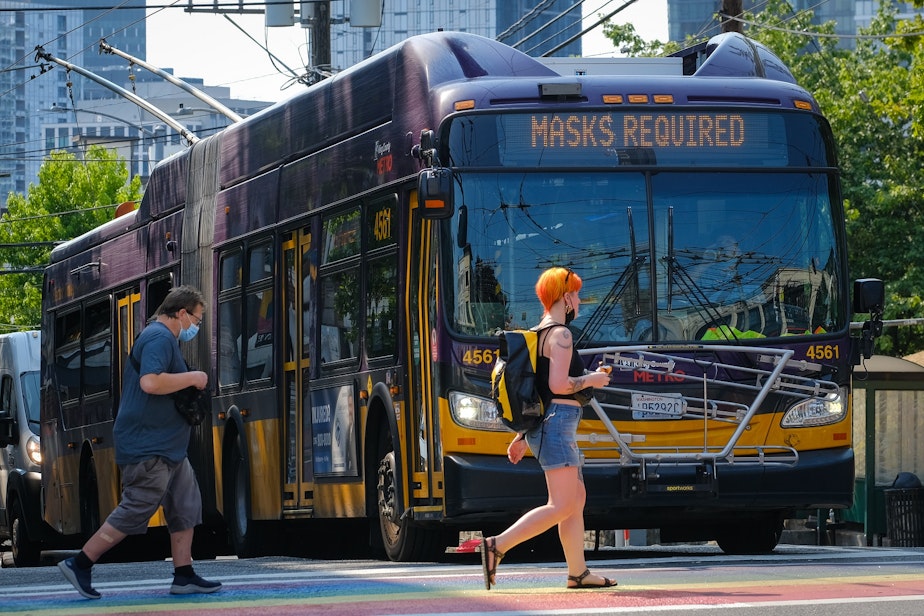'It is not OK,' Seattle union leader responds to transit drug study

The union leader representing Seattle's transit operators says, "Smoking drugs on public transportation should not be considered acceptable," following the results of a study that found traces of fentanyl and methamphetamine on buses and trains.
That study out of the University of Washington concluded that the traces were so small there was no risk to operators or passengers.
"It does provide some valuable insights that can help us understand the situation, but at the end of the day, it's still my workplace," said Ken Price, president of Amalgamated Transit Union Local 587, which represents transit workers in the Seattle area
"We're saying, 'Oh, yeah, it doesn't hurt people; There's no long-term effects.' We don't even know that yet. The study does not really cover all of that," Price said. "But it's the long-term effects on our streets, and our public transportation that many people depend on, that I call my workplace ... and it's just, 'Oh, yeah, we did a study. It's OK.' It is not OK."
Sponsored
Price added that it's "not OK," because the drugs are killing people, and the issue is placing mental stress on drivers.
Seattle-area transit operators have long raised alarms over drug use aboard buses. In 2022, KING5 reported that formal reports about drug use from King County Metro's drivers rose in recent years: 44 reports in 2019; 73 in 2020; and 398 in 2021. KOMO further reported that Metro's data for 2022 showed 1,885 reports of drug use on buses. Also, 16 operators filed workers' comp claims by March 2023. The UW study on Seattle buses and trains also began in March.
The study out of the UW's Environmental and Occupational Health Science Department focused on environmental factors and work conditions. It did not deal with health effects or toxicity from exposure to drugs. Experts did say, that while there are little or no standards for such exposures, they would not expect the low levels detected on buses and trains to be of risk to anyone.
Researchers monitored surface samples from buses and trains in Seattle and Portland. They also placed air monitors around operators and passenger areas. While traces of fentanyl were found in some samples, methamphetamine was detected in nearly 100% of samples. Researchers recommended upgrading air filters to MERV 13 or higher, as well as enhancing cleaning protocols. They also suggested mental health support for drivers.
RELATED: From needles to pipes. Seattle outreach adapts to morphing drug crisis
Sponsored
King County Metro responded to the study by saying it was already implementing such recommendations. Sound Transit also said more security guards have been added to its trains, who will ask people consuming drugs to leave.
Price would like to see more actions taken in the future, such as additional studies to determine if drug residue could build up in air ducts. He says the union would also like to see more enforcement around transit.
"We need to say, 'If you're take taken off [a bus] two or three times, you're either expelled or you're accepting some help," Price said.
"We would love to be able to have, maybe, police dogs at the transit centers — it's a deterrent. We're not enforcing, but boy, they go the other direction when they see police and police dogs."
RELATED: UW researcher says there's a simple way to help people addicted to fentanyl

